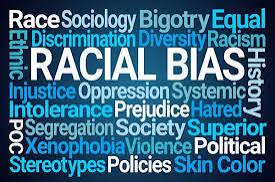Raising Anti-racism Children
Raising anti-racist children requires a holistic, thoughtful, and intentional approaches. To commence, it is essential to understand that being "not racist" is not enough. Instead, we need to actually teach children to be anti-racist.
* Key principles of anti-racism
1. Model anti-racist behaviour:
Children learn from what they see, so it is crucial to model the behaviours you want in your children. This includes being mindful of your own biases and actively working against racism.
2. Educate yourself:
Read books, articles, and online resources, to better understand racism and how to address it.
3. Have open conversations:
Talk to your children about racism and its impact on the targeted minors in the society, and try to be open to their questions and concerns.
* Practical tips:
1. Diversify your social network:
Expose your children to people from diverse backgrounds and cultures to help them develop empathy and understanding.
2. Use media to teach anti-racism:
Utilize books, movies, TV shows that showcase diverse characters and experiences and use these as opportunity to discuss racism and empathy.
3. Teach your child to be an ally:
Encourage your child to stand up for others who may be experiencing racism, and model how to do so in a respectful and supportive manner.
4. Address racism when you see it:
Point racist stereotypes behaviours when you see them, and use such moments as opportunity to teach your children about the importance of respect and empathy.
* Age-appropriate approach:
1. For young children (0-11 years old):
Play music, read books, and tell stories from diverse cultures. Attend cultural celebrations and talk about diversity in the the children's daily lives.
2. For teenagers (12-18 years):
Encourage child to stand up firmly against racism, volunteer for anti-racism organizations, and engage in discussions about local and federal policies that affect racially marginalized and oppressed communities.
3. Books:
Read books such as "Raising Anti-racist Children" by Brit Hawthorne and Natasha Yglesias, and "How to Raise an Anti-racist" by Ibram X. Kendi.
4. Websites:
American Psychological Association, PBS Kids, and organizations focused on racial justice and activism.
5. Online courses:
Consider enrolling in courses or workshops that focus on anti-racist parenting and education.
In conclusion, by following these tips and approaches, we can help raise anti-racist children who are equipped to make a positive impact in the world.
Please, kindly share this post with your friends and loved ones. Thank you very much.

.jpeg)
.jpeg)

Comments